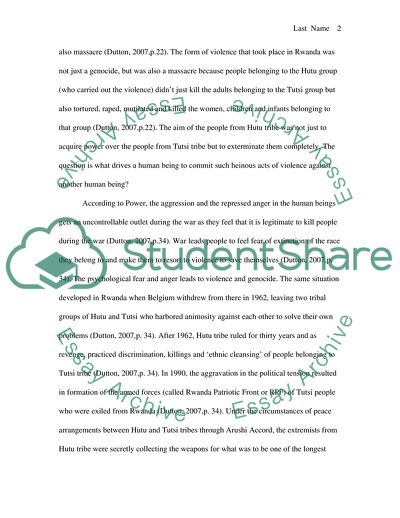Cite this document
(Rwanda Genocide Essay Example | Topics and Well Written Essays - 1750 words, n.d.)
Rwanda Genocide Essay Example | Topics and Well Written Essays - 1750 words. https://studentshare.org/military/1733934-rwanda-genocide
Rwanda Genocide Essay Example | Topics and Well Written Essays - 1750 words. https://studentshare.org/military/1733934-rwanda-genocide
(Rwanda Genocide Essay Example | Topics and Well Written Essays - 1750 Words)
Rwanda Genocide Essay Example | Topics and Well Written Essays - 1750 Words. https://studentshare.org/military/1733934-rwanda-genocide.
Rwanda Genocide Essay Example | Topics and Well Written Essays - 1750 Words. https://studentshare.org/military/1733934-rwanda-genocide.
“Rwanda Genocide Essay Example | Topics and Well Written Essays - 1750 Words”. https://studentshare.org/military/1733934-rwanda-genocide.


